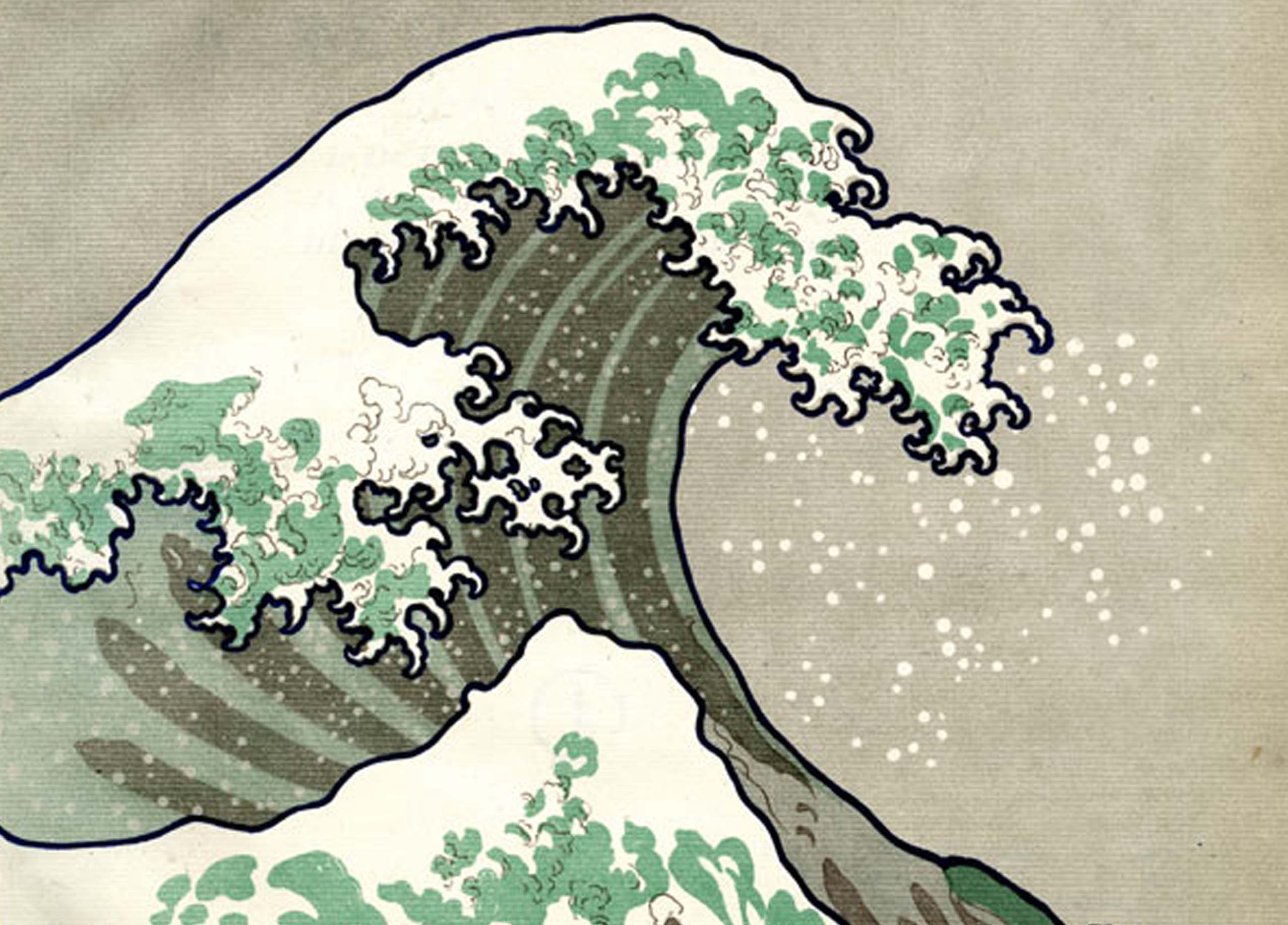
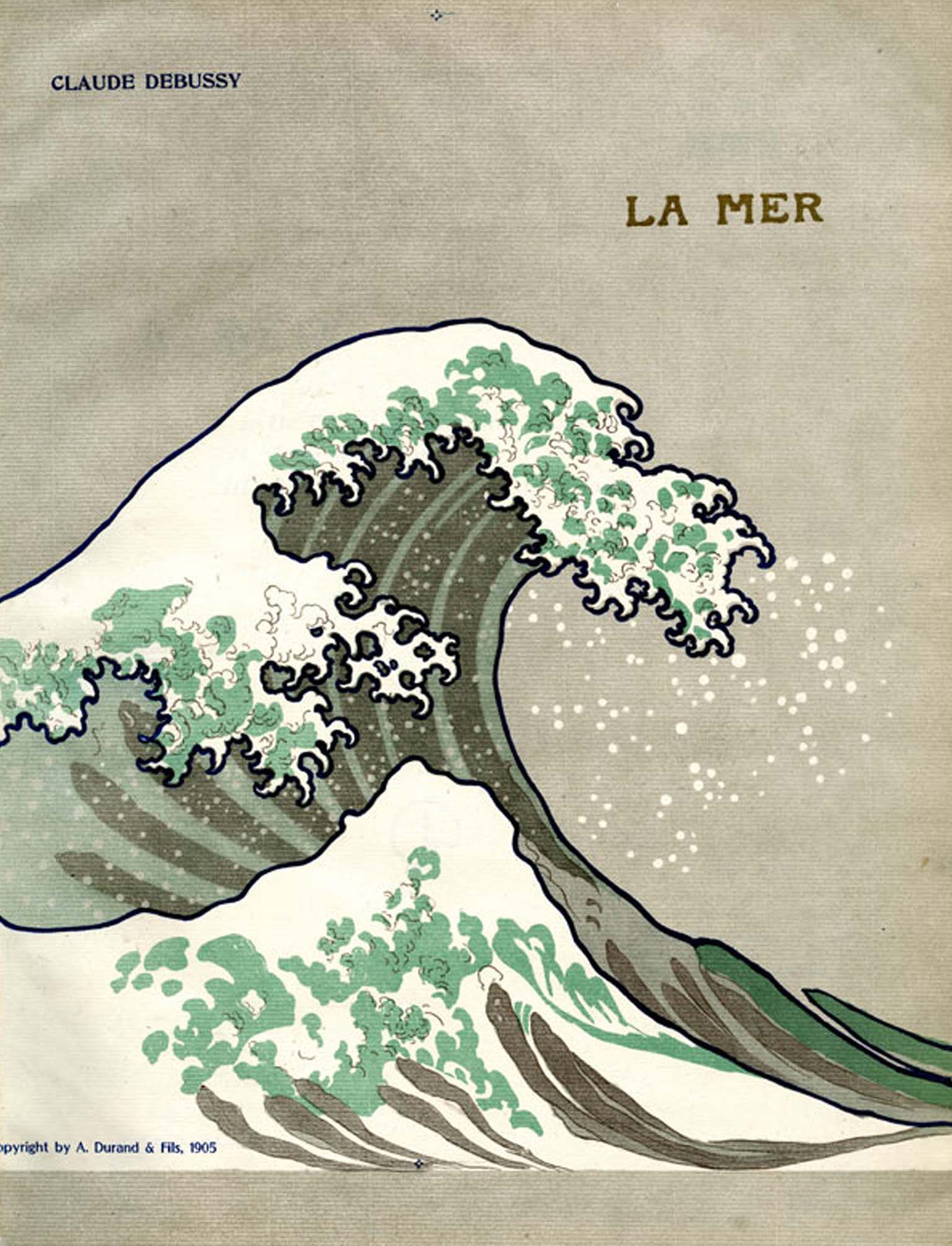
Digital programme booklet
Sa 22.04.2023 Mensch, Musik#7
Cities Land (in) Oceans
07.30 pm Haus des Rundfunks
Claude Debussy
„La Mer“ – Three symphonic sketches for large orchestra
Krzysztof Penderecki
„Threnody – To the victims of Hiroshima“ for 52 string instruments
Dai Fujikura
„Akiko’s Diary“ for solo piano (cadenza of „Akiko’s Piano“ from Piano Concerto No. 4)
Christopher Cerrone
„The Insects Became Magnetic“ for orchestra and electronics
Sarah Nemtsov
„Tikkun“ for string orchestra with percussion and recordings
Natalie Katharina Ilona Szende
„Oceanic Oscillations“ for synthesized seascape, symphonic orchestra and human voice
(Premiere)
Eliad Wagner
Infinite Coastlines pt. 1 & pt. 2 (Premiere)
Besetzung
Roderick Cox, Dirigent
Yu Kosuge, Piano
Natalie Katharina Ilona Szende, Composition & Synthesizer
Eliad Wagner, Composition & Synthesizer
Svenja Liesau, Actress
Vidina Popov, Actress
Marcus Wenk/ mediatec, Illumination
Ariane Stamatescu, Assistance
tauchgold, Text, Concept, Realisation
Cities Land (in) Oceans
Exploited, poisoned and covered with bombs. In the interdisciplinary performance “Mensch, Musik! #7 Cities Land (in) Oceans”, the Rundfunk-Sinfonieorchester Berlin explores human destructiveness, but also the hope for healing. The focus is on the story of the young Japanese pianist Akiko, who does not survive the atomic bombing in Hiroshima. Her piano, however, is still played today – still with shards of glass in the body due to the atomic blast wave. With six symphonic and electronic works, the RSB traces the destruction of nature and living beings, but also gives hope for a better, healing future.
BACKGROUND
Cities Land (in) Oceans
Name, place, animal, thing, in German Stadt, Land Fluss... When the river overflows its banks, the sea floods the coastal countries... Waste of energy, waste of resources, soil sealing, war, Hiroshima, radioactivity, Fukushima, rubbish. Human hubris everywhere on our common blue planet... Reflect, stop, rethink, start, begin healing... „The sea is a child, it plays, it does not know what it is doing ... it has long magnificent hair... and it has a soul...“ (Claude Debussy)
The three movements of the symphonic poem „La mer“ (1905) form the framework for this evening. Music that is highly artfully composed of short-limbed motifs, huge harmonic arches, refined tone colour direction and iridescent rhythms. If only our teachers had always been „the eternal rhythm of the sea, the wind in the leaves and a thousand little noises“ (Claude Debussy).
The shock of the atomic bomb, how can it be expressed in music? The orchestral work „Threnos“ (1961) by the Polish composer Krzysztof Penderecki, composed in the midst of the weapon-blasting Cold War, knows no restraint in reflecting the monstrosity of nuclear war into our souls. Radical sound dimensions, taboo use of material enter new compositional territory, move in border areas of sound and noise, use electronic sound generation, quarter-tone and aleatoric.
„In Hiroshima, there is a piano that survived the atomic bomb, the smashed glass window from the blast is still stuck to the piano’s body. This piano belonged to a 19-year-old girl, Akiko Kawamoto. Akiko was born in Los Angeles to Japanese parents. She got a piano by the American Baldwin company, made in Cincinnati, while she was still in America. When Akiko was six, she and her parents moved to Japan to live in Hiroshima. She kept practicing the piano, having lessons, and when she was 19 years old the atomic bomb was dropped. She survived the initial blast, walked and swam as the bridge had been destroyed. Then, the next day, she died in her parents’ arms. Her parents cremated their daughter’s body under a big persimmon tree which still exists today. At the time of her death, she did not know what killed her. Her last words were ‘Mom, I want to have a red tomato.’
There must be similar stories to that of this 19-year-old girl in every war in history and in every country in the world. Every war will have had an ‘Akiko’. The music of ‘Akiko’s Diary’ takes the most personal, the smallest point of view. I think that is the most powerful way, and only music can achieve this.“ (Dai Fujikura)
Insects that become magnetic. Because they have to live on contaminated soil? A curse? Because they could pick up rubbish and junk? A hope? Christopher Cerrone’s „The Insects Became Magnetic“ (2016) was premiered in Los Angeles by Roderick Cox. The composer: „As the piece progressed, I began thinking about a passage from Adam Clay’s ‘Goodbye to All That, the Birds Included’ – a poem I’d loved for years: ‘I hope the insects become magnetic, to eat plastic hillsides, to pull a drone down, even. It might even be a collage, now that I look.’ I realized I, too, was making a kind of collage: mixing electronic feedback with centuries-old violins, street noise and rarified orchestral acoustics, the canon and the vernacular, hoping to find something new in it all.”
Sarah Nemtsov, renowned German composer with an alert awareness of social issues, gave this to her orchestral work „Tikkun“ (2021): „‘Tikkun olam’ means ‘healing’ or ‘repairing the world’ and is considered an important ethical principle in Judaism, an essential task of man: He should contribute to improving the state of the world.“
Natalie Szende, a student at the Catalyst Institute in Berlin, combines spherical orchestral sounds and electronically generated sounds of nature in her composition, which is intended to hover over the entire evening as a good omen: The recovery of the world and all its inhabitants.
Steffen Georgi
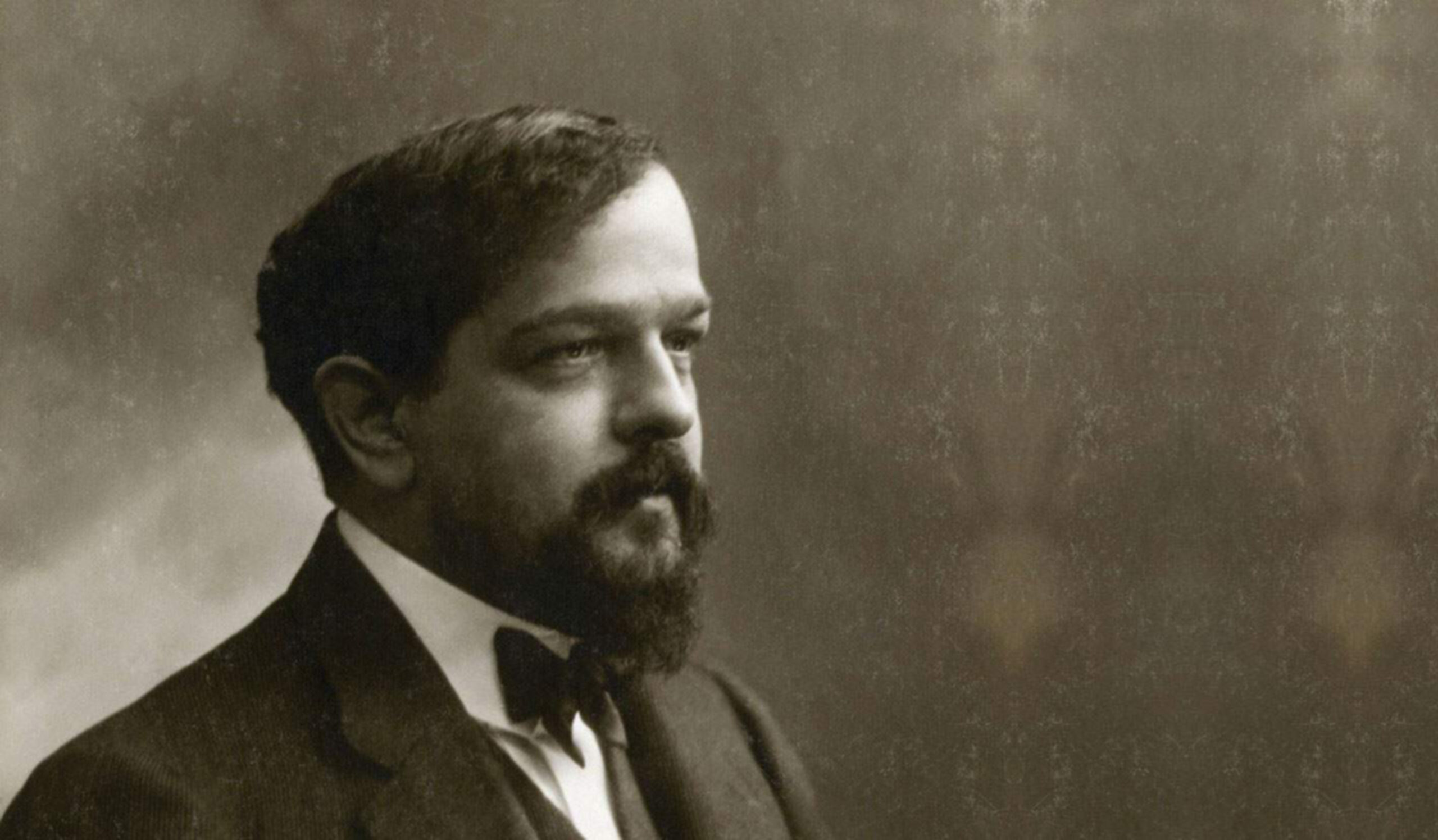
Of Turtles and the Creep gear of Consciousness
/.../
A: So what about the turtles ...?
B: So now you do?
A: Yes, they are.
B: All right ... Then let me elaborate a little. The last few years -
A: They weren’t boring!
B: Not by any stretch of the imagination: first the pandemic wave, then the wave of cross- and lateral thinkers with their conspiracy-affiliated social neuroses. In between, a bit of melting pack ice here and forest fires there, then Trump, Trump and Trump again, even if the election victory of Biden & Harris brought tears of relief to our eyes.
A: Only briefly.
B: Exactly. Take a breather. It’s long since come back to dealing with the fact that about half of humanity thinks this mixture of ruthlessness, bravado and inferiority complex is leadership, which they willingly follow into doom when in doubt.
A: Like in Russia just now...
B: ...or history, especially our own. Equally notorious are the lax mores and opportunism of those who know their flocks are somewhat in the clear. By this I do not mean the usual suspects from big business. I don’t mean the big villains who, for the sake of profit, make the rise of the respective political crooks possible in the first place. I mean the average established people who have learned that in life you just have to make a few compromises. Small compromises that are insignificant in themselves, but in the aggregate erode the trust of the less established in the polity and make them susceptible. I’m thinking of programme makers who think it’s generous to let unemployed musicians play on the radio without pay because of the pandemic. Consultants who don’t mind that their fancy slides may cause misery in whole regions. Programmers whose elegant algorithms turn people into users, and users into digital cannon fodder for corporate data battles, and so on and so forth. I mean, in short, somehow all of us who get excited in well-heated flats about the seductiveness of the masses while we miss out on our own.
A: Okay, there are plenty of examples. - But... turtles?
B: Well, I recently read an article about the extent of environmental damage caused by artificial light. It describes how artificial light causes newly hatched turtles to lose their natural orientation, which is why they crawl out of their sand holes towards the brightly lit car parks of hotels instead of towards the moonlight and the sea...
A: Really stupid!
B: That’s right. - At least their agony gives us a nice analogy.
A: Which is?
B: Even if consciousness succeeds in digging itself out of the coarsest primordial mud, it still faces the difficulty of not taking the wrong direction in the crawl of becoming human. What glows most enticingly and lends itself comfortably is not necessarily the best choice.
A: It remains complicated. How do we want to live?
B: Above all, for how much longer?
tauchgold
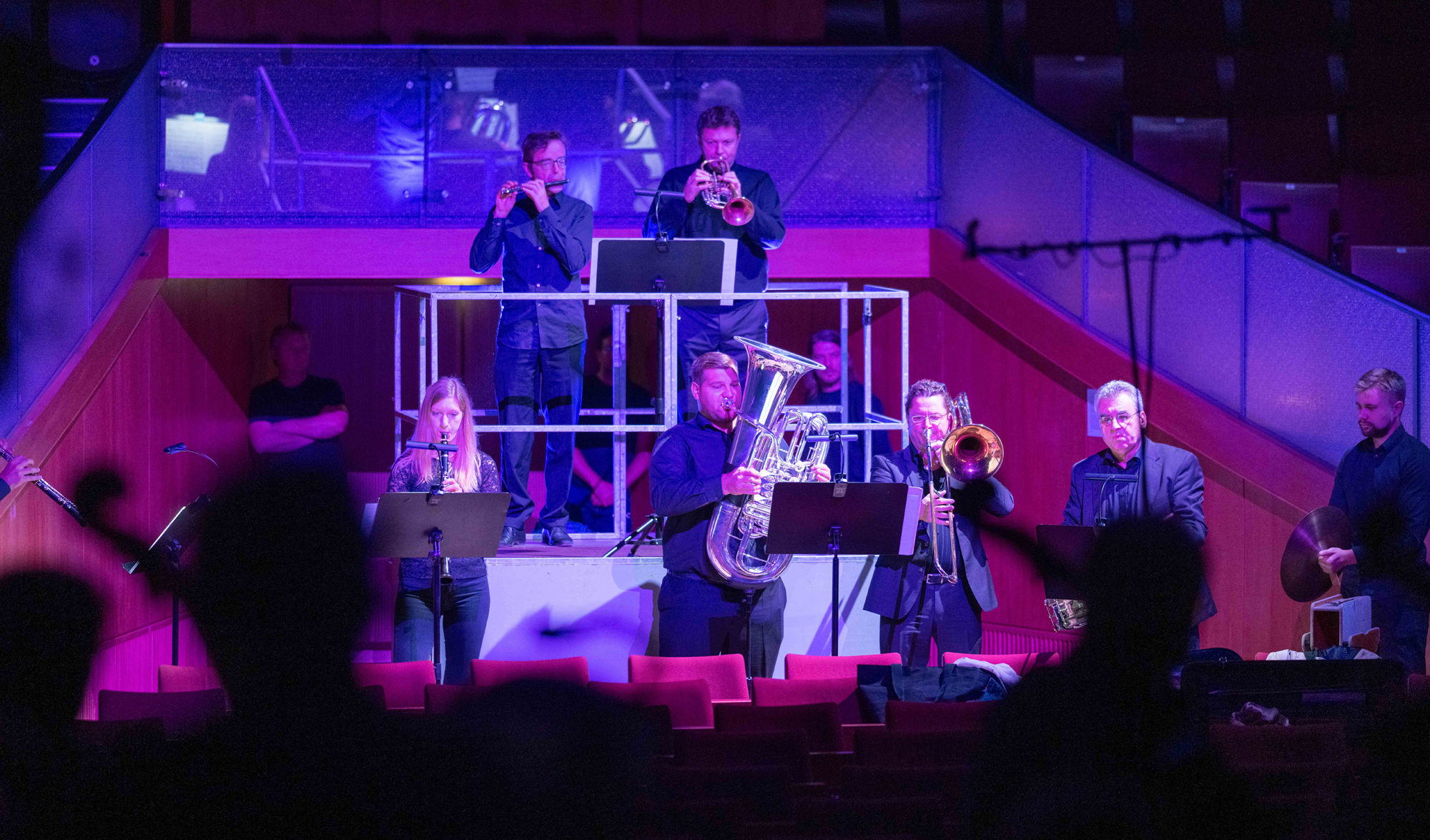
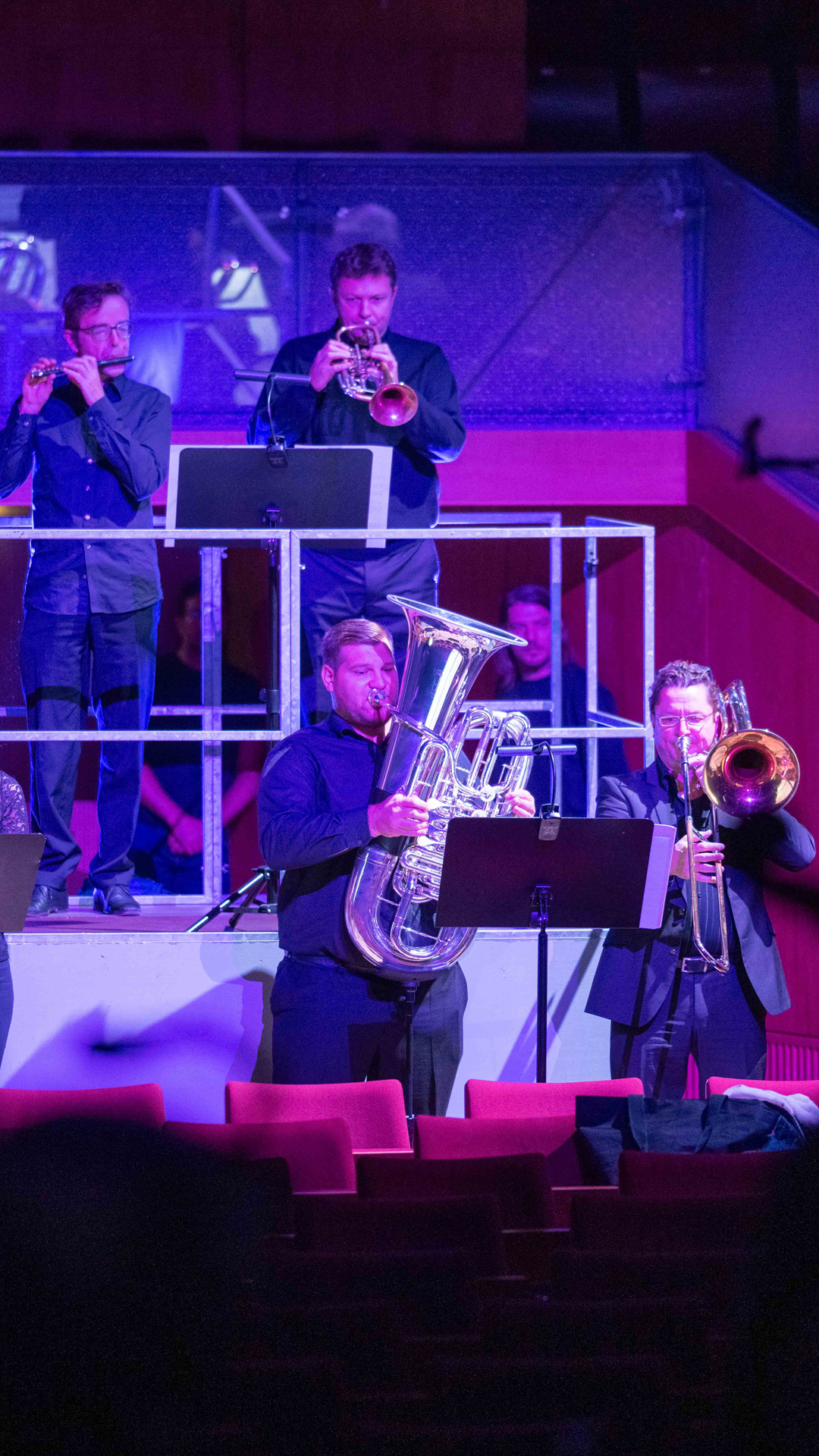
Sanctuary of Inversions
After the event, an installation by other Catalyst artists awaits you in the foyer of the Haus des Rundfunks:
As you move through the foyer of Haus des Rundfunks, we invite you to listen and meditate on the sounds of nature vs machine.
Using multiple levels of the foyer, the installation explores spatialisation and sound design. Engaging with the dialogue in the room, you will hear field recordings from around the world of both the natural environment and urban environments – including a live feed from Masurenallee. Or take refuge in the sanctuary offered by headphones that transport you between three worlds:
- Channel 1: Inversions of the foyer’s soundscapes, merged and reversed
- Channel 2: Sounds from the womb and water
- Channel 3: Ambient piano compositions ruminating on Akiko’s piano
A waterfall drops into the space, visually reminding us of the message of natural/urban inversion, evolving as the evening progresses.
This group installation is presented by fifteen artists, musicians and producers of Catalyst’s Creative Production Music M.A. All recordings and compositions are original works of the group.
Paternoster Pitch mit Natalie Szende
During a ride in the legendary paternoster in the Haus des Rundfunks, musicians, conductors and guest artists introduce themselves and their projects.

Evening cast, short biographies
Roderick Cox
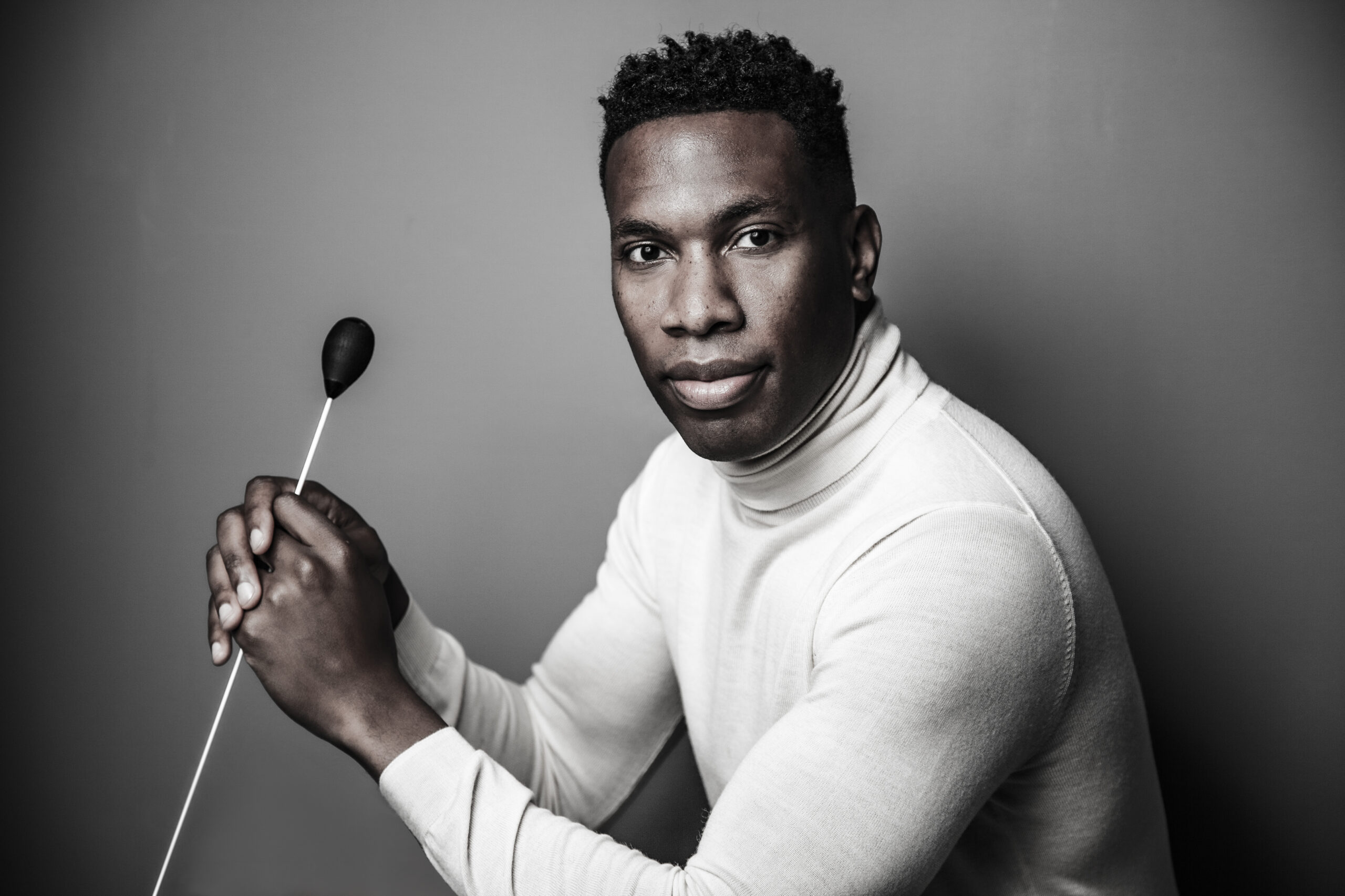
The young, Berlin-based American conductor Roderick Cox, winner of the Sir Georg Solti Conducting Award 2018, has made his debut with a number of renowned orchestras in recent years, including the Bavarian Radio Symphony Orchestra, the Seattle and New World Symphony Orchestras, the Cincinnati Symphony Orchestra, the BBC Philharmonic. As a guest conductor he has repeatedly led orchestras in Malmö, Kristiansand, Lahti, Washington, Bremen, Dresden, London, Paris, Cleveland, Dallas, Los Angeles, Detroit, Minnesota and at the Aspen Music Festival.
As an opera conductor, Roderick Cox has led productions at Houston Grand Opera (“Pêcheurs de Perles”) and San Francisco Opera (“Il barbiere di Siviglia”) and recorded Jeanine Tesori’s “Blue” at Washington National Opera. In 2022/2023 he returns to the Opéra national de Montpellier for “Rigoletto”, having previously impressed there with a symphony concert.
Born in Macon, Georgia, Roderick Cox attended the Schwob School of Music at Columbus State University and later studied at Northwestern University, where he earned a master’s degree in 2011. He was awarded the Robert J. Harth Conducting Prize by the Aspen Music Festival in 2013 and has been a fellow of the Chicago Sinfonietta and the Chautauqua Music Festival. In 2016, Roderick Cox was appointed by Osmo Vänskä as Associate Conductor of the Minnesota Orchestra for three seasons, having previously served as Assistant Conductor for one year.
Yu Kosuge
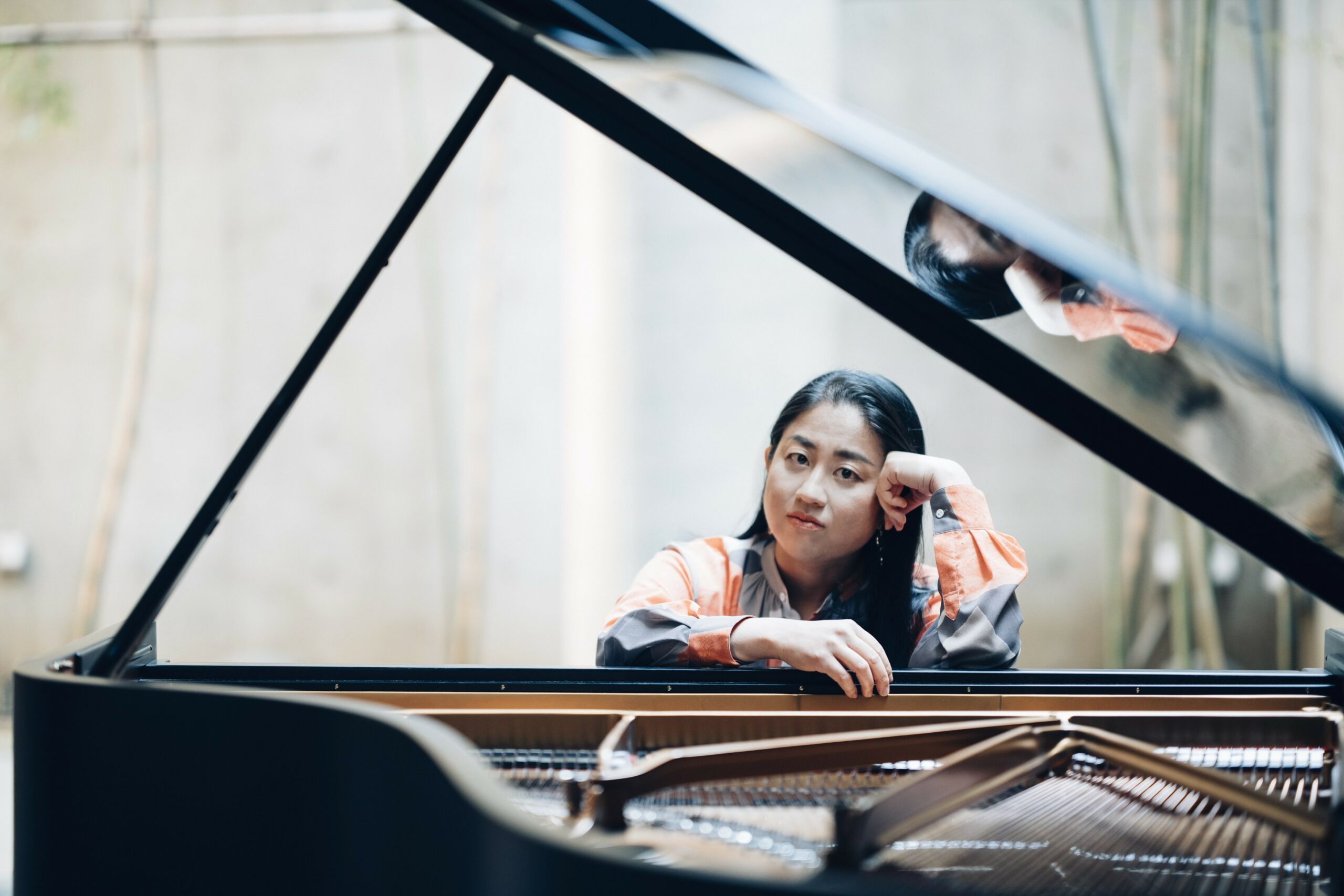
With her outstanding technique, delicate touch and penetrating understanding of music, Yu Kosuge is one of the most highly regarded pianists of her generation worldwide. Yu has been giving concerts and performing with orchestras since childhood; at the age of nine, she made her debut with the Tokyo New City Orchestra. In 1993 she moved to Europe to continue her studies in Hanover and Salzburg, receiving great support and inspiration from András Schiff.
Yu Kosuge has performed at leading venues in Berlin, Hamburg, Cologne, Munich, Vienna, Salzburg, London, Paris, Brussels, Amsterdam, Zurich, Moscow, St. Petersburg, Tokyo, Washington and New York. Her debut recital at Carnegie Hall was well received by critics who praised her “acute poetic sensibility…. wit, drama and radiant lyricism”. She has been invited to festivals throughout Europe, including the Salzburg Festival, Rheingau, Schleswig-Holstein, Bremen, Mecklenburg-Vorpommern, Passau, Braunschweig, Mozartwoche Salzburg, Holland Music Festival, Piano Festival Lille, La Roque d’Anthéron Piano Festival and La Folle Journée de Nantes. She also enjoys chamber music and has performed with members of the Berlin Philharmonic.
In addition to regular appearances with all the major Japanese orchestras, Yu Kosuge has worked with many of Europe’s leading orchestras, including the NDR Elbphilharmonie Orchester, the Konzerthausorchester Berlin, the hr-Sinfonieorchester, the Camerata Salzburg, the St. St. Petersburg Symphony Orchestra, the Orchestre Philharmonique de Radio France and the BBC Symphony Orchestra, and has performed under conductors such as Seiji Ozawa, Jun Märkl, Philippe Herreweghe, Gerd Albrecht, Lawrence Foster, Sakari Oramo, Christian Arming, Yutaka Sado, Mark Wigglesworth, Kazuki Yamada, Osmo Vänskä, Vasili Petrenko and Dennis Russell Davies.
In March 2017, Yu Kosuge received the Suntory Music Award, which is given to individuals or organisations that have made an outstanding contribution to the development of Western music in Japan. Yu Kosuge lives in Berlin.
Natalie Katharina Ilona Szende
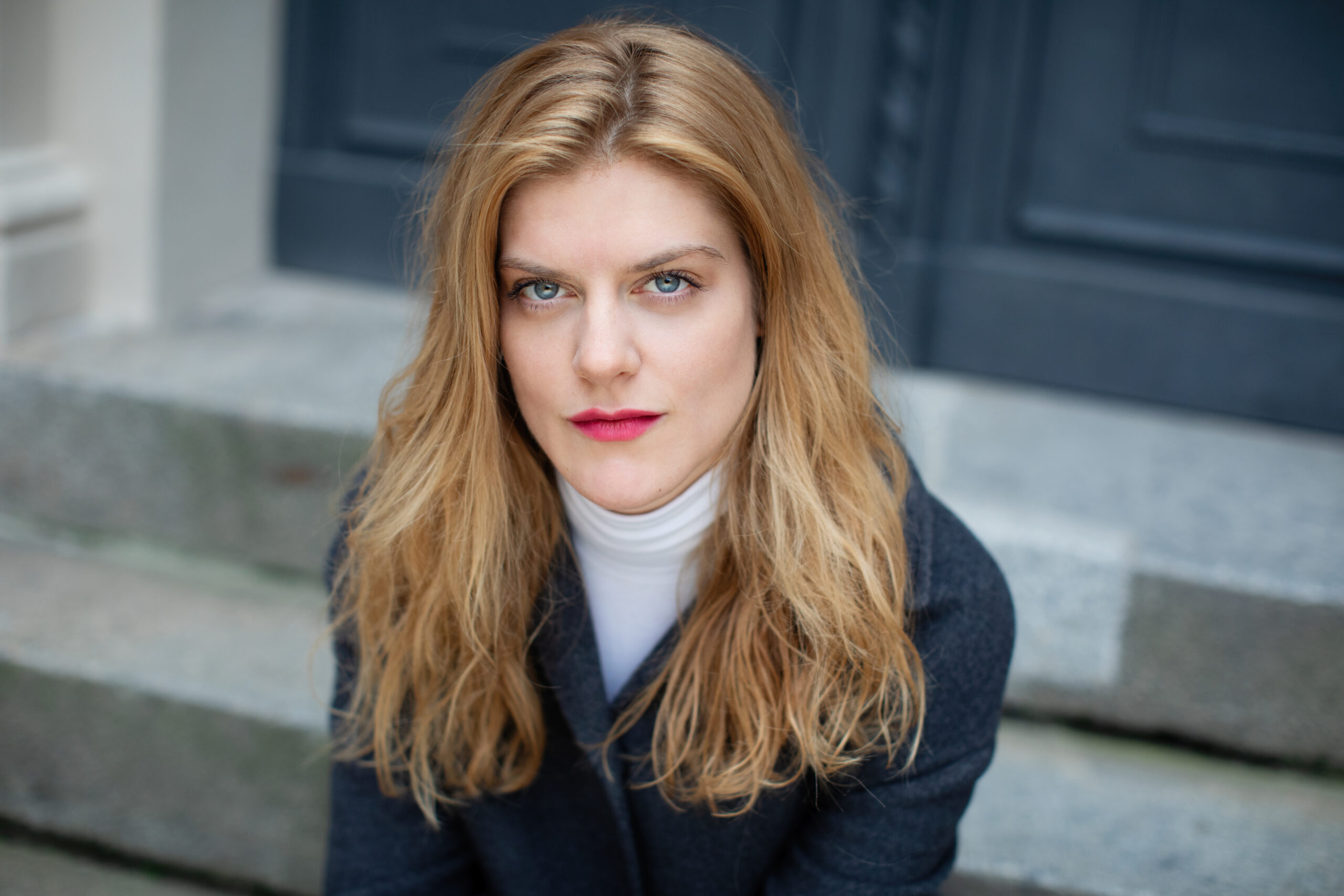
Natalie Katharina Ilona Szende studied Musicology and Cultural Anthropology at the
Humboldt University Berlin. During her studies, she worked as a curatorial assistant for the
interdisciplinary project Montag Modus at the intersection of performing and visual arts, due
to which her interest in contemporary performance art intensified. In her hometowns,
Budapest and Augsburg, she has been active in music and acting from an early age – in the
latest production of the Berlin-based ensemble Shakespeare Reloaded she played the role of
Romeo. The production was invited to The Dell in Stratford-upon-Avon by the Royal
Shakespeare Company in August 2022.
Since September, she has been pursuing an Electronic Composition program at the Catalyst
Institute for Arts and Technology and participates in the collaborative initiative Hyper:Synth
with the Rundfunk-Sinfonieorchester. On the common ground between classical and
electronic music, whose principles and possibilities the artist explores, Szende debuted with
her electroacoustic compositions in November 2022 as part of the Vocantare Chamber Choir’s
concerts conducted by Tobias Walenciak. She made her solo debut at this year’s CTM-Vorspiel
with the performative composition Cave Waltzes for piano, voice and live-electronics.
Natalie’s compositional approach is to create a synthesis between sonic, (inter)human and
spatial elements, also by fusing the acoustic and electronic spectrum, manifesting in cinematic
Dreamscapes.
Eliad Wagner
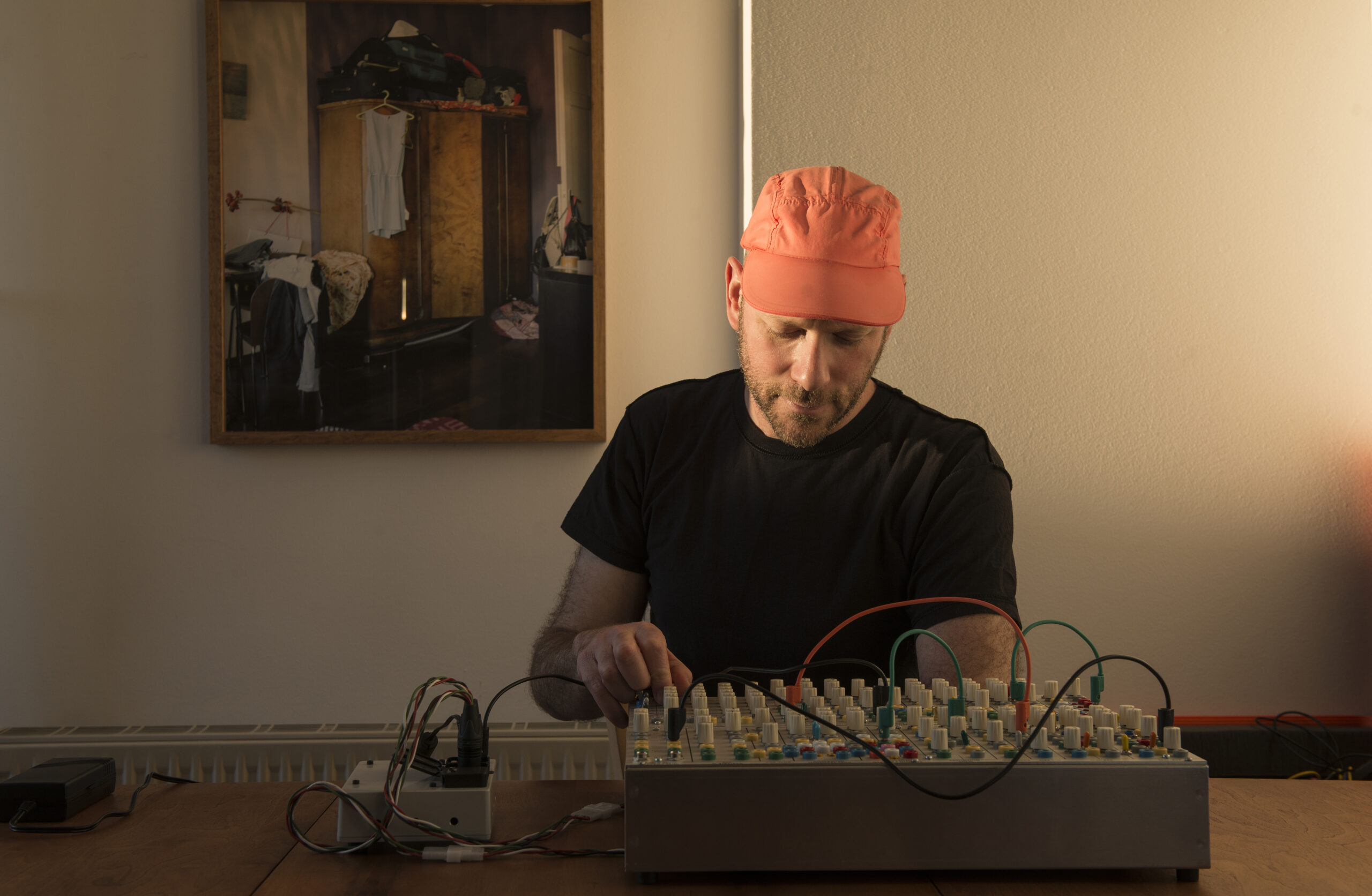
Eliad Wagner is a composer, performer, sound artist and lecturer, a classically trained musician, holding academic degrees in physics and music. His musical activities explore the meeting point of composition and performance while addressing thoughts on the vocabulary of electronic music, autonomous processes, intention and attention in audio culture, and people’s natural relationship with technology.
In 2012 Wagner relocated to Berlin, where he quickly became an active member of the city’s experimental music scene as a performer of live electronic music (playing the modular synthesizer). as well as composing for small ensembles and installations. He is co-founder of and regularly contributing composer to the electro-acoustic ensemble ‘Circuit Training’. As a performer he worked with artist such as Ignaz Schick, Marta Zapparoli, Wolfgang Seidel, Alexi Borisov, Tristan Honsinger, Olaf Rupp, Els Vandeweyer, Emilio Gordoa, Andre Vida, Richard Scott, Alexandre Babel, Tomomi Adachi, Dean Roberts, Andrea Parkins and Robyn Schulkowsky.
Since 2015, He is the head of the Electronic Music Production and Performance degree programme at the Catalyst Institute for Creative Arts and Technology in Berlin - an international, diverse, genre-agnostic academic programme he has designed to train students in composition and performance of electronic music.
Svenja Liesau
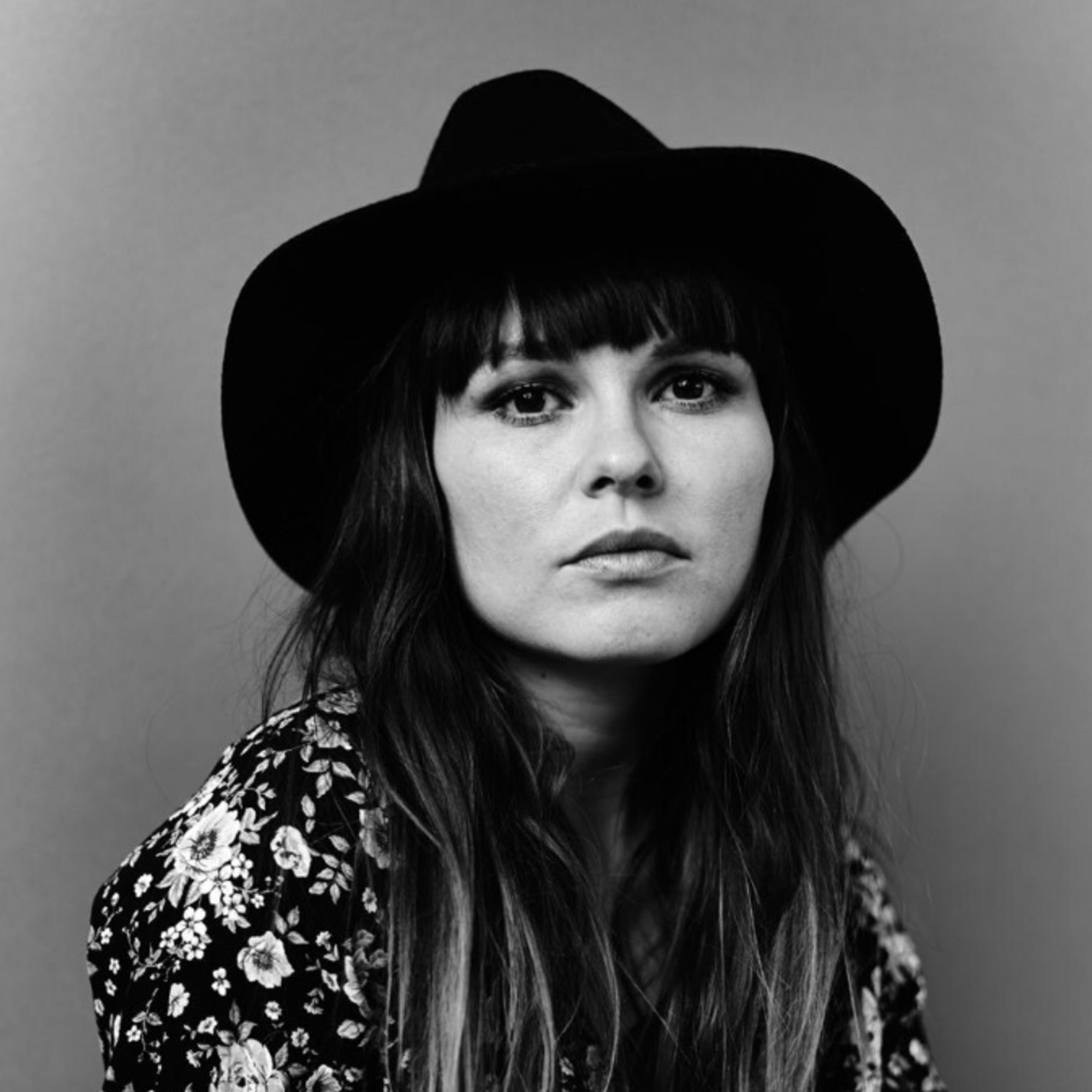
Svenja Liesau was born in Magdeburg in 1989 and completed her acting training at the Ernst Busch Academy of Dramatic Arts in Berlin in 2013. Even before her studies, she had her first engagements at the Magdeburg Theatre, where she worked with Jan Jochymski, among others. Since February 2013 she has been part of the ensemble of the Maxim Gorki Theater Berlin. She has worked with directors Armin Petras and Jan Bosse, among others. From 2013 to 2017 she was an ensemble member at Schauspiel Stuttgart. From 2017 to 2022, Svenja Liesau was again a permanent ensemble member at the Gorki. There she worked with the directors Yael Ronen, Sebastian Nübling, Christian Weise and Leonie Böhm, among others. She played in VERRÜCKTES BLUT directed by Nurkan Erpulat, which was invited to the Theatertreffen in 2011, and in UND SICHER IST MIT MIR DIE WELT VERSCHWUNDEN directed by Sebastian Nübling, which was chosen by Theater heute as play of the year 2021. She can also be seen regularly on stage in HAMLET directed by Christian Weise and as a guest.
Vidina Popov
Vidina Popov was born in Vienna in 1992. In the noughties, Popov performed as a child at the Vienna Volkstheater and worked for ORF as a children’s presenter for numerous programmes. From 2012 to 2016 she studied acting at the Mozarteum in Salzburg and in 2013 wrote the monologue play Ich bin Bulgare?! which was performed in the Box at the Deutsches Theater Berlin, among other venues. Together with her class, she wins the ensemble prize at the Schauspielschultreffen in 2015.
In 2016 she also attended the clown school École Philippe Gaulier in Paris. Popov has been a permanent member of the ensemble at Berlin’s Maxim Gorki Theatre since the 2017/2018 season. She will be invited to the 2022 Theatertreffen with Yael Ronen’s Slippery Slope.
She has been nominated several times by Theater heute as best young actress for her roles in Alles Schwindel, Und sicher ist mir die Welt verschwunden and Slippery Slope.
Popov is regularly active in film and television, among others in the ARD series Der Lissabon Krimi, in Tatort or most recently in the biopic Alice. She is currently writing another solo with the working title The Pop-Off Show.
tauchgold
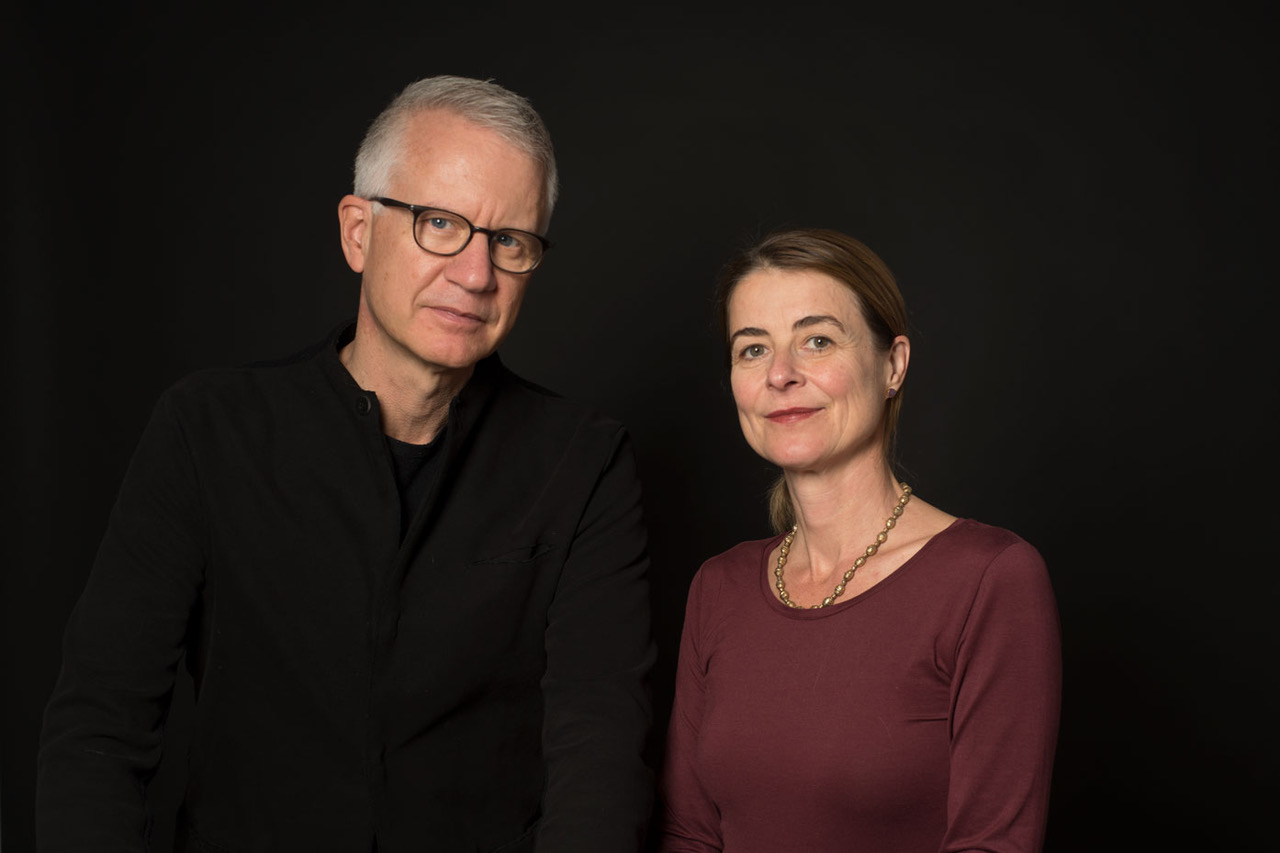
Since 2007 tauchgold (Heike Tauch and Florian Goldberg) have been realising plays at the interface of radio and stage. Their works include social satires, historical dramas and philosophical material. However, specially composed music always plays a central role. In 2019, her stage work “Das Gläserne Meer – Ein Narratorium für Streicher und Stimmen” (The Glass Sea – A Narratorio for Strings and Voices) premiered in Munich, with a composition by Cathy Milliken based on the radio play “Metamorphoses”. For “Borrowed Landscape – A Narratorio for Piano Trio and Voices”, composer Dai Fujikura wrote the music (2022). In June 2022, tauchgold already realised the RSB’s “Mensch, Musik!”#4 project entitled “Wanderungen”. The two following “Mensch, Musik!” projects in spring 2023 will also be created together with tauchgold.
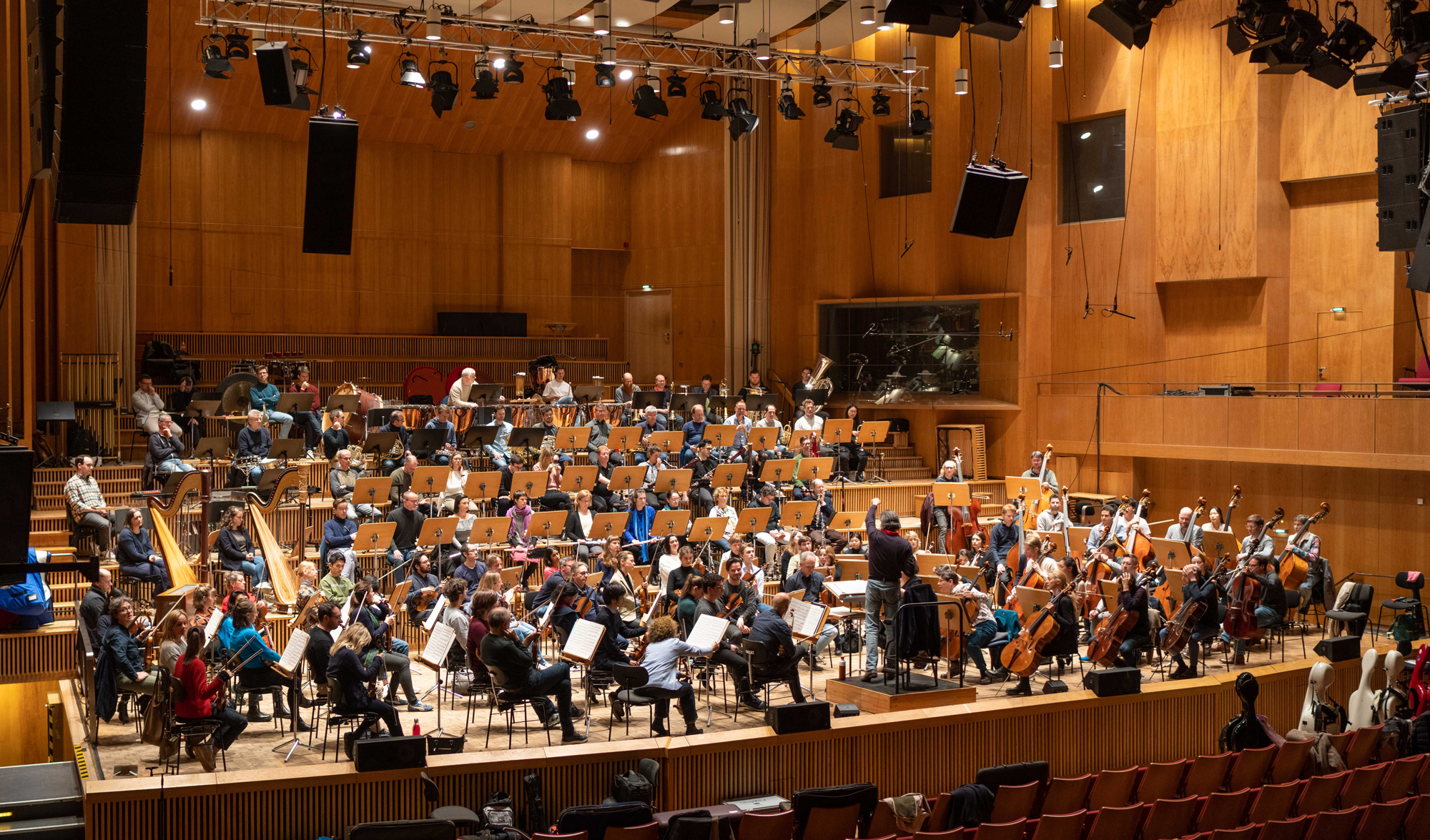
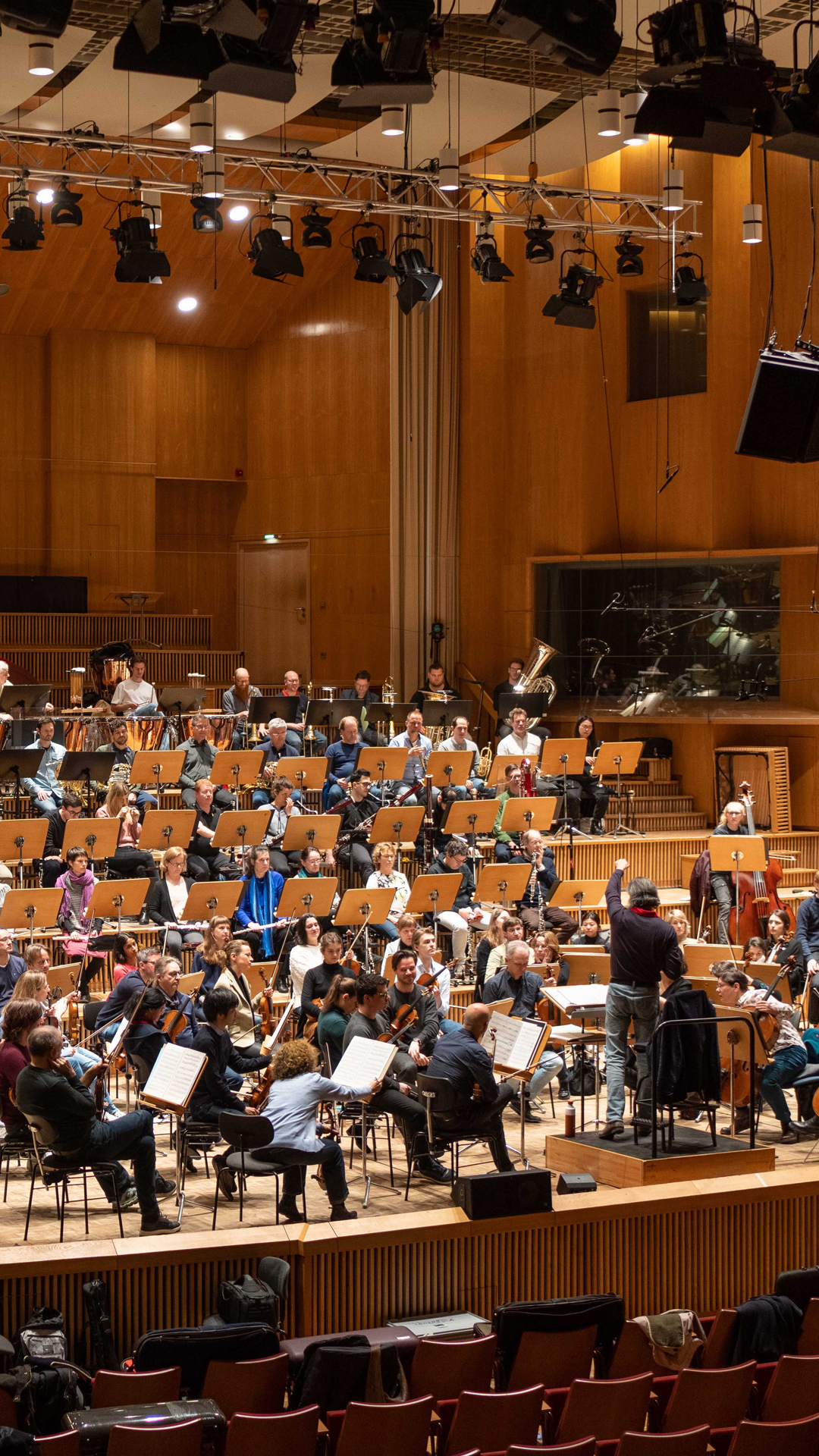
RSB Evening Cast
Violine 1
Wolters, Rainer
Neufeld, Andreas
Bondas, Marina
Beckert, Philipp
Drechsel, Franziska
Pflüger, Maria
Morgunowa, Anna
Feltz, Anne
Yamada, Misa
Behrens, Susanne
Hildebrandt, Laura
Scilla, Giulia
Kang, Jiho
Heidt, Cathy
Violine 2
Contini, Nadine
Simon, Maximilian
Drop, David
Petzold, Sylvia
Eßmann, Martin
Buczkowski, Maciej
Manyak, Juliane
Bauza, Rodrigo
Bara, Anna
Palascino, Enrico
Marquard, David
Heidt, Cathy
Viola
Rinecker, Lydia
Silber, Christiane
Zolotova, Elizaveta
Markowski, Emilia
Doubovikov, Alexey
Montes, Carolina
Nell, Lucia
Kantas, Dilhan
Shin, Hyeri
Kreuzpointner, Isabel
Violoncello
von Gutzeit, Konstanze
Riemke, Ringela
Boge, Georg
Weigle, Andreas
Bard, Christian
Kipp, Andreas
Wittrock, Lukas
Kalvelage, Anna
Strienz, Christian
Doublebass
Wagner, Marvin
Schwärsky, Georg
Ahrens, Iris
Gazale, Nhassim
Nejjoum-Barthélémy, Mehdi
Zón, Jakub
Thüer, Milan
Flute
Uhlig, Silke
Döbler, Rudolf
Dallmann, Franziska
Oboe
Bastian, Gabriele
Grube, Florian
Vogler, Gudrun
Clarinet
Link, Oliver
Pfeifer, Peter
Korn, Christoph
Bassoon
You, Sung Kwon
Voigt, Alexander
Königstedt, Clemens
Gkesios, Thomas
Horn
Ember, Daniel
Holjewilken, Uwe
Stephan, Frank
Hetzel de Fonseka, Felix
Trumpets
Schleicher, Thomas
Lemmel, Roman
Gruppe, Simone
Hofer, Patrik
Trombone
Manyak, Edgar
Vörös, József
Lehmann, Jörg
Tuba
Neckermann, Fabian
Harp
Edenwald, Maud
Thalheimer, Markus
Percussion
Schweda, Tobias
Tackmann, Frank
Weiss, Leonard
Lindner, Christian
Timpani
Wahlich, Arndt
Piano
Inagawa, Yuki
Cooperation

Image and video rights
Portrait Roderick Cox © Susie Knoll
Orchesterbilder © Peter Meisel